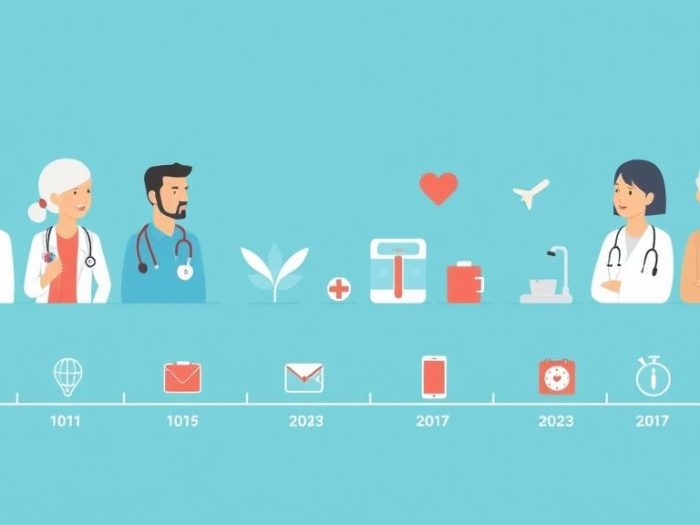Early retirement offers many freedoms, but it also presents the challenge of securing
health insurance before Medicare eligibility at age 65. This article explores the various
health insurance options available to early retirees and provides guidance on choosing the
best plan for your needs.
Understanding the Challenge
Health insurance is crucial, and going without it can be financially devastating in case
of a medical emergency. Early retirees need to bridge the gap between their retirement
date and Medicare eligibility.
Health Insurance Options for Early Retirees
1. COBRA
COBRA (Consolidated Omnibus Budget Reconciliation Act) allows you to continue your
employer’s health insurance plan for a limited time after leaving your job.
-
Pros:
- Familiar coverage.
- May have lower deductibles than some other options.
-
Cons:
- Can be very expensive as you pay the full premium plus an administrative fee.
- Limited duration (usually 18 months).
2. Affordable Care Act (ACA) Marketplace
The ACA Marketplace offers health insurance plans to individuals and families.
-
Pros:
- Subsidies may be available based on income.
- Coverage for essential health benefits.
-
Cons:
- Plan options and costs vary by location.
- Premiums can still be significant.
3. Private Health Insurance
You can purchase individual health insurance plans directly from insurance companies.
-
Pros:
- Variety of plan options.
-
Cons:
- Can be expensive.
- Coverage may be less comprehensive than ACA plans.
4. Spousal Health Insurance
If your spouse is still working, you may be able to join their employer’s health
insurance plan.
-
Pros:
- May be more affordable than other options.
-
Cons:
- Dependent on your spouse’s employment situation.
5. Early Retiree Health Insurance Plans
Some organizations or associations offer health insurance plans specifically designed
for early retirees.
-
Pros:
- May offer more affordable or comprehensive coverage.
-
Cons:
- Availability and eligibility requirements vary.
Choosing the Best Option
The best health insurance option for you depends on several factors:
- Your Budget: How much can you afford to spend on premiums?
- Your Health Needs: Do you have any pre-existing conditions or anticipated medical expenses?
- Your Risk Tolerance: Are you comfortable with higher deductibles and out-of-pocket costs?
- Your Location: Plan options and costs vary by state and region.
Strategies to Reduce Costs
- Compare Plans Carefully: Don’t just focus on premiums; consider deductibles, copays, and out-of-pocket maximums.
- Consider a High-Deductible Health Plan (HDHP): HDHPs often have lower premiums and can be paired with a Health Savings Account (HSA).
- Use Generic Drugs: Opt for generic versions of prescription medications.
- Telehealth: Utilize telehealth services for routine checkups or minor illnesses.
Conclusion
Securing health insurance before Medicare eligibility is a critical aspect of early
retirement planning. By carefully evaluating your options, considering your individual
needs, and exploring cost-saving strategies, you can find a plan that provides adequate
coverage and fits your budget.
Related Keywords
Early retirement health insurance, health insurance before Medicare, health insurance for
early retirees, COBRA, ACA marketplace, private health insurance, HDHP, HSA, retiree health
insurance, affordable health insurance.
Frequently Asked Questions (FAQ)
1. Why is health insurance a concern for early retirees?
Early retirees need to secure health insurance to bridge the gap between
their retirement date and Medicare eligibility at age 65.
2. What is COBRA?
COBRA allows you to continue your former employer’s health insurance plan for
a limited time after leaving your job.
3. What are the advantages and disadvantages of COBRA?
Pros include familiar coverage and potentially lower deductibles. Cons include
high cost and limited duration.
4. What is the ACA Marketplace?
The ACA Marketplace offers health insurance plans to individuals and families,
with potential subsidies based on income.
5. What are the pros and cons of ACA Marketplace plans?
Pros include potential subsidies and coverage for essential health benefits.
Cons include varying costs and plan options by location.
6. Can I purchase health insurance directly from an insurance company?
Yes, you can purchase individual health insurance plans directly from
insurance companies, but they can be expensive.
7. Is spousal health insurance a good option for early retirees?
Spousal health insurance can be a good option if your spouse is still
working, as it may be more affordable.
8. What is an HDHP?
An HDHP (High-Deductible Health Plan) has lower premiums but higher
out-of-pocket costs, and it can be paired with a Health Savings Account (HSA).
9. What are some strategies to reduce health insurance costs?
Strategies include comparing plans carefully, considering an HDHP, using
generic drugs, and utilizing telehealth services.
10. What is the most important factor in choosing health insurance before Medicare?
The most important factor is to carefully evaluate your budget, health needs,
risk tolerance, and location to find the best plan for your situation.



